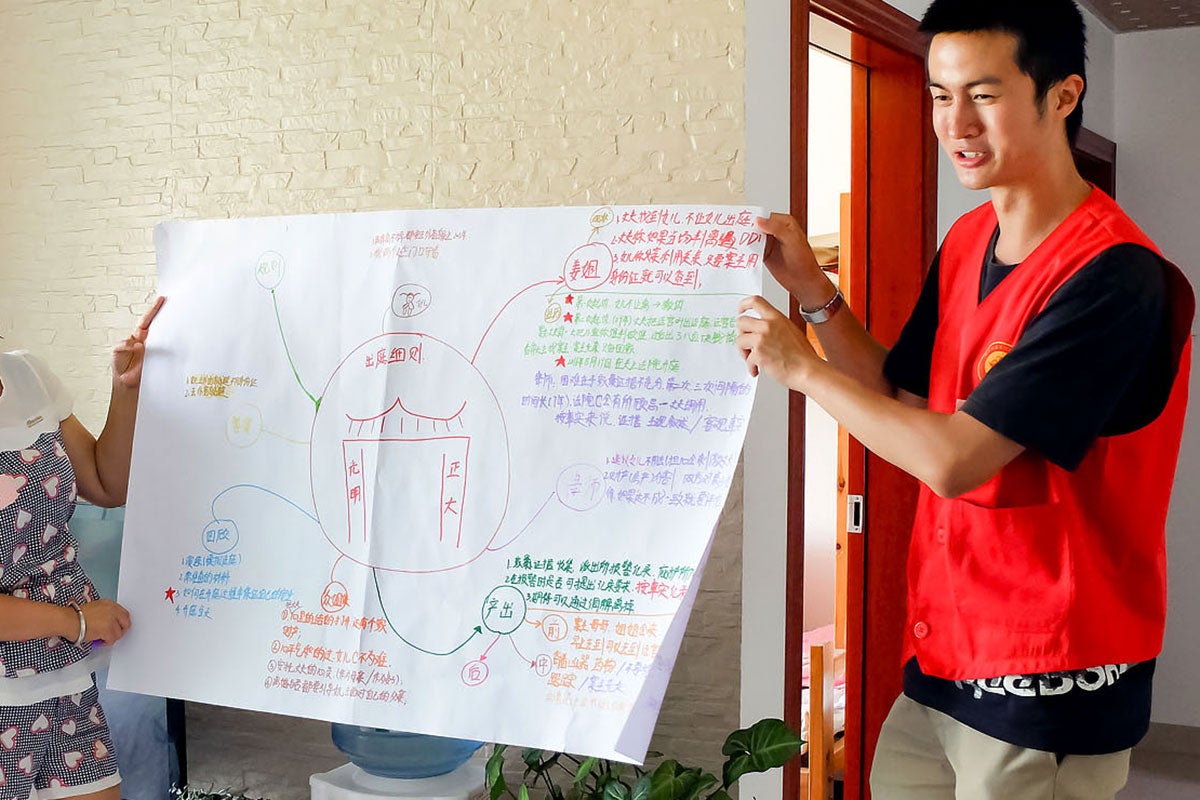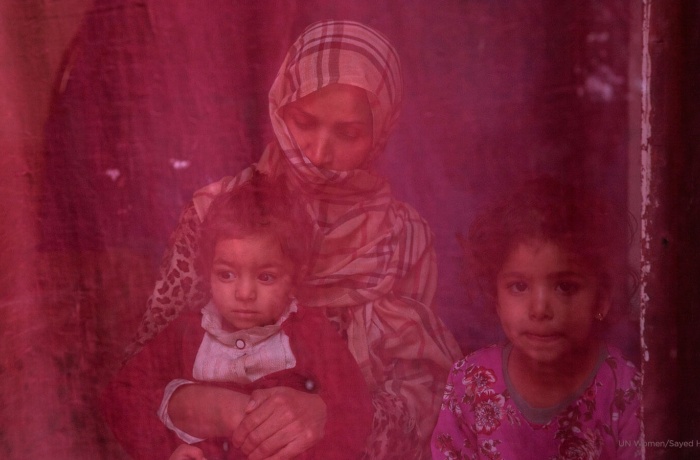How men and boys can help women survivors of gender-based violence: Shu Hang’s story
In the southwestern Chinese city of Kunming, the Yunnan Mingxin Social Work Service Center has worked for nearly 10 years aiding survivors of gender-based violence. The organization’s services range from an abuse hotline to a shelter, “Nesting House”, that operates in an undisclosed location. Since April 2023, the organization has been a member of the network of local civil society organizations in China to receive support from UN Women.
Gender-based violence has had a place on China’s national policy agenda in recent years; since the country’s first national law on domestic violence went into effect in 2016, the national hotline to report such abuse has received 250,000 calls. From March 2016 to December 2022, authorities issued about 15,000 protective orders to survivors.
One detail that sets the Yunnan Mingxin Social Work Service Center apart from similar groups is the fact that its director, Shu Hang, is a man.

“Initially, as a male social worker, I held gender biases and struggled to understand the challenges faced by abused women and their hesitations to leave their abusers”, Shu said. As he proceeded with the work, however, “I gradually began to understand the root causes of gender-based violence and survivors’ complex situations”.
He noted that many survivors depend economically on their abusers, lack support systems that would allow them to leave abusive relationships, or fear that their personal lives may be publicly exposed.
The Yunnan Mingxin Social Work Service Center has both men and women volunteers and social workers who offer survivors a wide array of support, from collaborating with authorities on their cases to accompanying them to court.
Shu said that biased social norms were among the biggest hurdles for preventing gender-based violence.
“We encounter many biases, such as the belief in male dominance—that men are more powerful than women, and women are subordinate to the family”, he said. “If we can’t break down these biases, survivors of domestic violence and gender-based violence will continue to face societal pressure.”
In some cases, Shu said, men can provide unique support.
“Given that over 95 per cent of the cases we deal with involve male perpetrators, as a male social worker, I’m the one to communicate and engage with many of them”, he said.
The Yunnan Mingxin Social Work Service Center has run a variety of programmes aimed at helping men become advocates against gender-based violence.
In one instance, male volunteers attended local matchmaking events, where they advocated for gender equality and held discussions on preventing abuse. In another programme, single and divorced male migrant workers, some of whom had formerly been abusers themselves, were brought together for workshops and community activities centred on preventing domestic abuse, cultivating respectful relationship with their partners, non-violent communication skills, and reflection on social norms that facilitated violence against women and girls.
“We encourage more men and boys to engage in activities that promote gender equality and address gender-based violence”, Shu said. “In the future, we hope to see more men actively participate in the fight against gender-based violence through their practical actions.”








